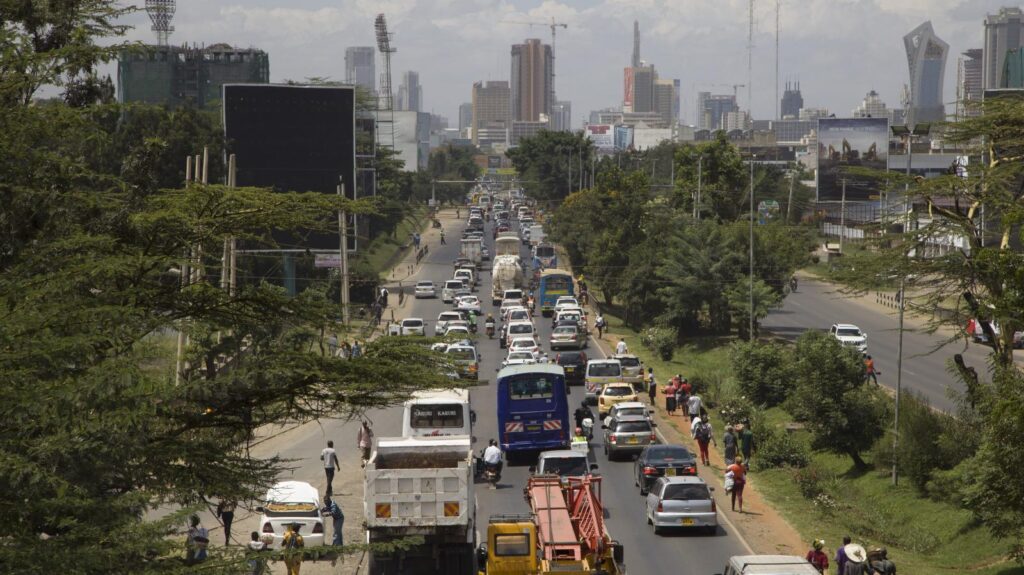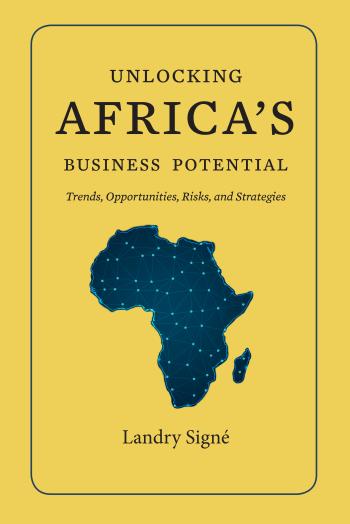

As Africa braces for a head-on collision with coronavirus with the World Bank announcing its first recession in 25 years, the continent can eventually look forward to many post-Covid-19 recovery and growth narratives. Public and private leaders should draw on past experiences to face the economic challenges of Covid-19.
In my book Unlocking Africa’s Business Potential, I examine the performance of African economies and explore private sector development opportunities in eight sectors that will foster economic growth and diversification, job creation, and improved general welfare, all of which are critical for increasing economic resilience.
Over the past decade, Africa has been one of the fastest-growing regions in the world. Back in 2008, the continent was largely able to avoid the worst of the negative effects of the financial crisis, and with sufficient support, it will do the same with the Covid-19 crisis.
However, there are going to be wide disparities in the growth rates and performances of African countries. In exploring these disparities, three groups of countries are going to emerge:

The first group comprises countries with relatively steady economic performance over the past two decades. This group includes fast growers such as Rwanda and Ethiopia, and slower but relatively consistent growers such as Morocco. Barring exceptional circumstances, this group of countries appears best prepared for strong post-Covid-19 economic performance.
Leaders in Rwanda and Ethiopia have increasingly implemented pro-growth policies, improving ease of doing business and governance effectiveness, as well as relations with international donors and global investors—all of which are likely to unlock these nations’ post-Covid-19 economic potential. Apart from a slight regression in 2002, since 2000, Ethiopia has grown at a steady rate of about 7% or higher until recently, and it was barely affected by the 2008 crisis.
The economies of the fast growers have shown their resilience to previous global economic shocks over the past two decades, and since they are not oil exporters, they will be less affected by the oil-price war. Even a slower but relatively consistent grower such as Morocco has the potential to be highly resilient in the post-Covid-19 era.
In fact, in addition to its broader economic resilience—demonstrated by its ability to handle other global shocks—and its relatively diversified economy, the Moroccan health care system is also one of the most efficient in the world (Top 50 globally). Furthermore, in the face of the virus, its leadership has been one of the most proactive in Africa, adopting the most restrictive measures to contain Covid-19 while also investing in the broader economy.
The second group comprises countries such as Côte d’Ivoire and Ghana, whose GDP growth rates have improved significantly over the past decade. If the Covid-19 pandemic doesn’t reach its full scale, this group will be relatively resilient, as these countries have developed some fundamentals, including improving state capacity, macro-economic management, and relations with multilateral institutions.
For example, Côte d’Ivoire is one of the fastest-growing economies in the world and FDI net flows have more than doubled. It was able to recover from its recent civil war because of its policy choices and appetite from the private sector. However, given the short duration of the performance of countries in the second group, Covid-19 will be a real test to their actual resilience, and one should expect a hybrid outcome dependent on incidence and exposure.
Given the reduced demand of chocolates around the world during the pandemic crises, Cote d’Ivoire and Ghana, two of the world’s largest producers of Cocoa are also among the most exposed to a price drop, with consequences on their revenues. The other weak point of this group of countries is their healthcare systems, which may not be able to handle a full-on epidemic.
The third group of countries includes those whose economic performances have been either very slow or have substantially oscillated between growth and decline over the past two decades. The slow growers include the Central African Republic, Chad, and Zimbabwe, and the oscillating growers include Gabon, Malawi, Nigeria and Angola.
The post-Covid resilience and growth narratives for this group of countries will most likely be heterogeneous, given their diversity of economic structures, macroeconomic policies, political regimes, and exposure to commodities, but it is this group of countries that will suffer the most.
Oil-rich countries such as Angola could be particularly exposed: the oil sector represents more than 90% of its exports and one third of GDP. China, which has been seriously affected by Covid-19 and has reduced its acquisition of oil, is the main buyer of exports (61% of total exports, mostly oil). Angola received about $10 billion in oil-backed loans from China, which also holds over half of its external debt.
The level of resilience and post-economic recovery will therefore be directly tied to exogenous factors, but this doesn’t mean that all is lost: good deals, like the heavily indebted poor countries (HIPC) initiative in the past, could potentially save the day.
Another country worth highlighting, for different reasons, is Zimbabwe. Up until 2009, Zimbabwe’s GDP was constantly on the decline. It improved slightly in the early 2010s and is now stabilizing at 3%, on par with the overall African growth rate. Over the years, investments into Zimbabwe have remained meager: the country attracts less than 1% of total FDI into all of Africa. Zimbabwe’s poor economic performance can be tied to various factors, ranging from poor macroeconomic governance to corruption and poor political governance. If the country suffers a massive and full pandemic, the post-Covid-19 growth narrative may not be one of joy.
Each African country, regardless of its stage of economic growth, presents a particular set of opportunities across various sectors and a particular set of challenges in facing Covid-19.
As I discuss in my book, African countries represent tremendous economic potential; how the virus affects this potential remains to be seen. Economic resilience will depend on policymakers adopting pro-growth and pro-poor policies focused on productivity, income, demand, and inclusion, and on how they implement robust competition policies in markets and industries in order to unlock private sector potential and reduce barriers to growth.
Ultimately, accountable and effective leadership will be the key to Africa’s resilience and successful transformation.
By Landry Signé
Reference :https://qz.com/africa/1855850/africas-economic-resilience-will-rebound-growth-post-covid-19/